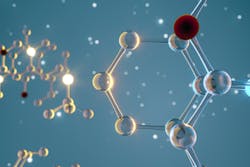Rutgers researchers are seeking to develop the technology to modify or “edit” protein molecules in the body—an advance that could spur major breakthroughs in human health.
While such research is in its early phases, the Rutgers team has received support from a National Science Foundation program that provides funding for boldly conceived research.
The research team, which includes faculty members from multiple disciplines on the New Brunswick and Camden campuses, recently received a three-year $1.5 million grant from the NSF Molecular Foundations for Biotechnology program for “high risk-high payoff” research that could set new directions in 21st century science.
Proteins are the “workhorses of biology”—responsible for making cells function in all living things. Everything from the immune system to respiration to thought and emotion are carried out by complex protein molecules, each with its own 3D shape that determines its function. Defective or misfolding proteins, however, are associated with illnesses from Alzheimer’s and Parkinson’s diseases to cancer.
The goal, in short, is to build molecules, or “protein editors” in the lab that can recognize, attach to, and modify proteins in the body. That would require a high degree of precision: There are an estimated 10,000 to several million protein molecules in human cells. Accordingly, the project encompasses chemistry, biophysics, robotics, computer science, and statistics.
Rutgers release on Newswise
